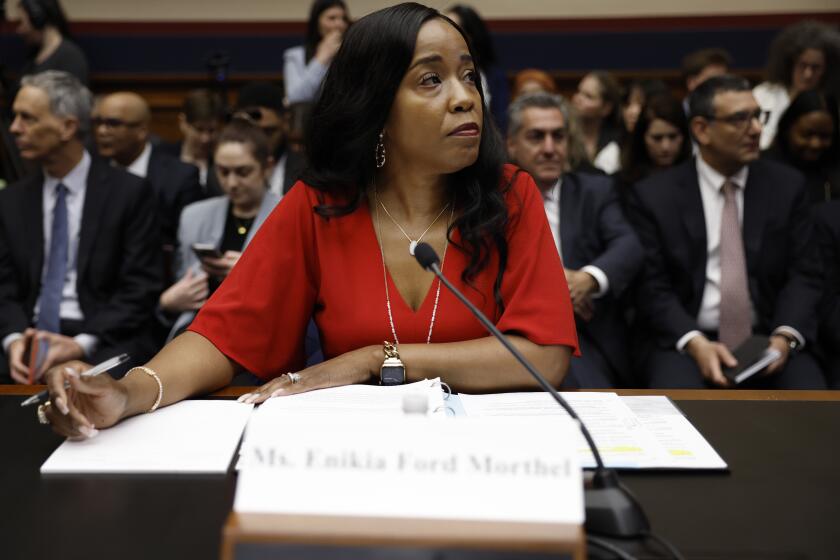Self-Inflicted Injury
Washington is boycotting a United Nations conference to trace the relationship, if any, between what the world spends on arms and what it needs to invest in economic development. The snub is a national disgrace that virtually guarantees that Washington’s worst fears will come true.
The State Department thinks the agenda of the meeting that started Monday in New York stacks the deck against the West. It served notice months ago that it saw no point in sitting through what probably will be a three-week harangue against big defense budgets that might be diverted to raising standards of living around the globe, particularly in Third World countries. It argues that there is no automatic trade-off between saving on weapons and spending on food, roads or factories.
It may well be right on all three counts, but refusing even to discuss the issue represents a cross between arrogance and insecurity. Nothing in the budget process guarantees that savings on weapons will be invested in food, roads or factories. The “peace dividend” that was to have followed the end of the Vietnam War never was declared. Congress has demonstrated that, given a choice, it can always find better ways to spend money at home than it can to spend it abroad. And the Soviet Union, the nations of Eastern Europe--all of which will be represented, eager for their turns at the podium--and developing countries that yearn for money to make their economies grow almost certainly will pass up few chances to beat up on the West. But the State Department’s concerns should be debated, along with the question of why the Soviets spend so little on economic aid to the countries of the Third World.
All of America’s allies in the North Atlantic Treaty Organization will be present to deflect the harangue with the perfectly respectable argument that the West must arm to defend itself against a nation as ready for combat as the Soviet Union. The allies are not particularly happy about going it alone, but they have no choice, inasmuch as the United States, so central to NATO’s defense of Europe and so involved in countering threats in Third World countries whose arms come from Moscow, will not be there to help.
If the conference seemed so hopeless, the State Department at least should have pleaded that it could not spare time from its efforts to negotiate a treaty that would eliminate medium-range nuclear weapons in Europe--one that might pave the way for other arms-control treaties.
Instead, Washington added insult to self-inflicted injury, scolding the United Nations for spending $1.3 million of its scarce funds on the conference in a time of tight budgets. A U.S. delegate to an international conference on the world economy used a similar argument recently, sneering at delegates from other nations for wasting money on the airline tickets that got them to the meeting. In the end the conference endorsed the incentives of the free market as the best hope for healthy economies--something that the Reagan Administration has preached for years. There is a lesson there, but with the boycott in place it is rather late for Washington to learn from it.
More to Read
Get the L.A. Times Politics newsletter
Deeply reported insights into legislation, politics and policy from Sacramento, Washington and beyond. In your inbox three times per week.
You may occasionally receive promotional content from the Los Angeles Times.






